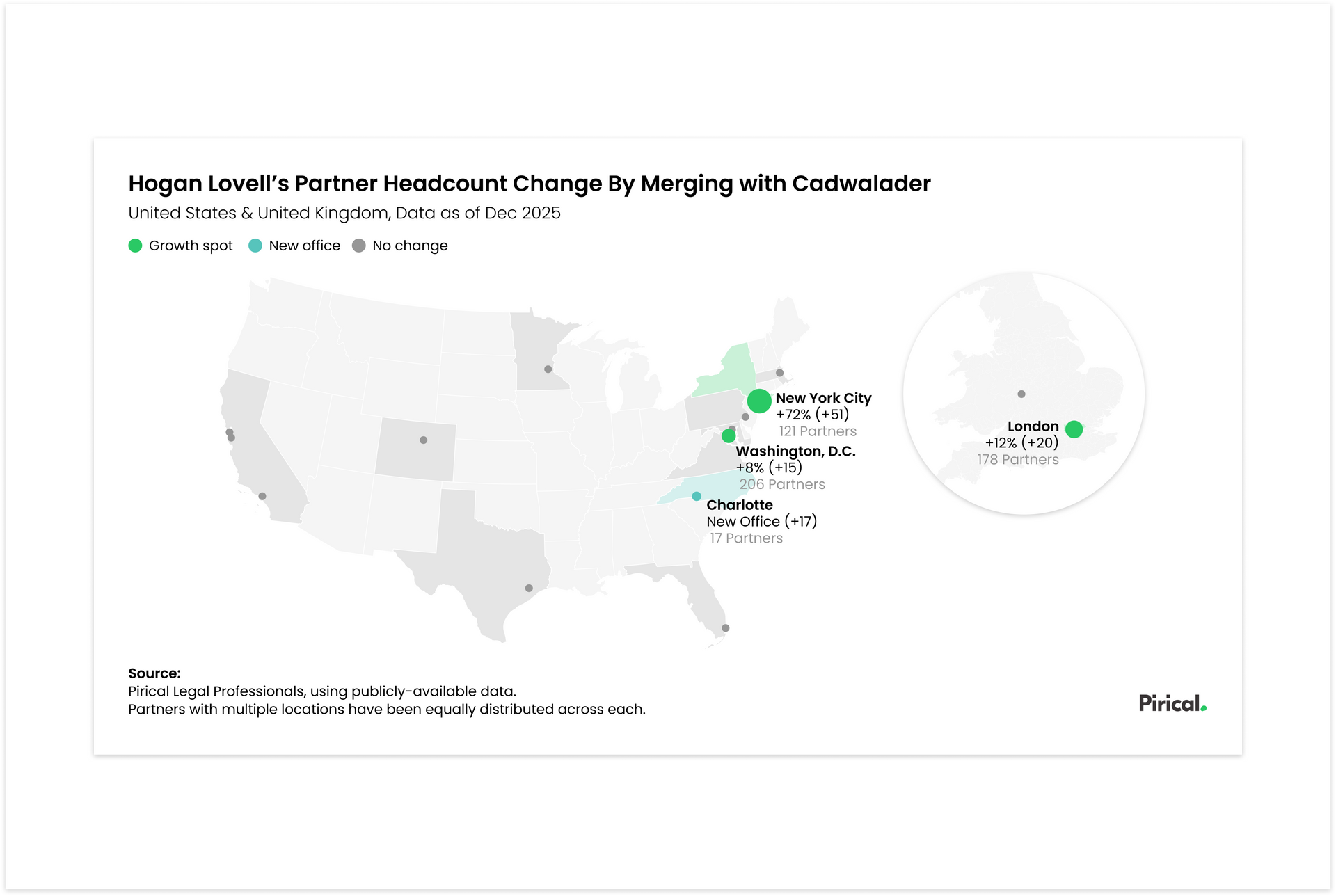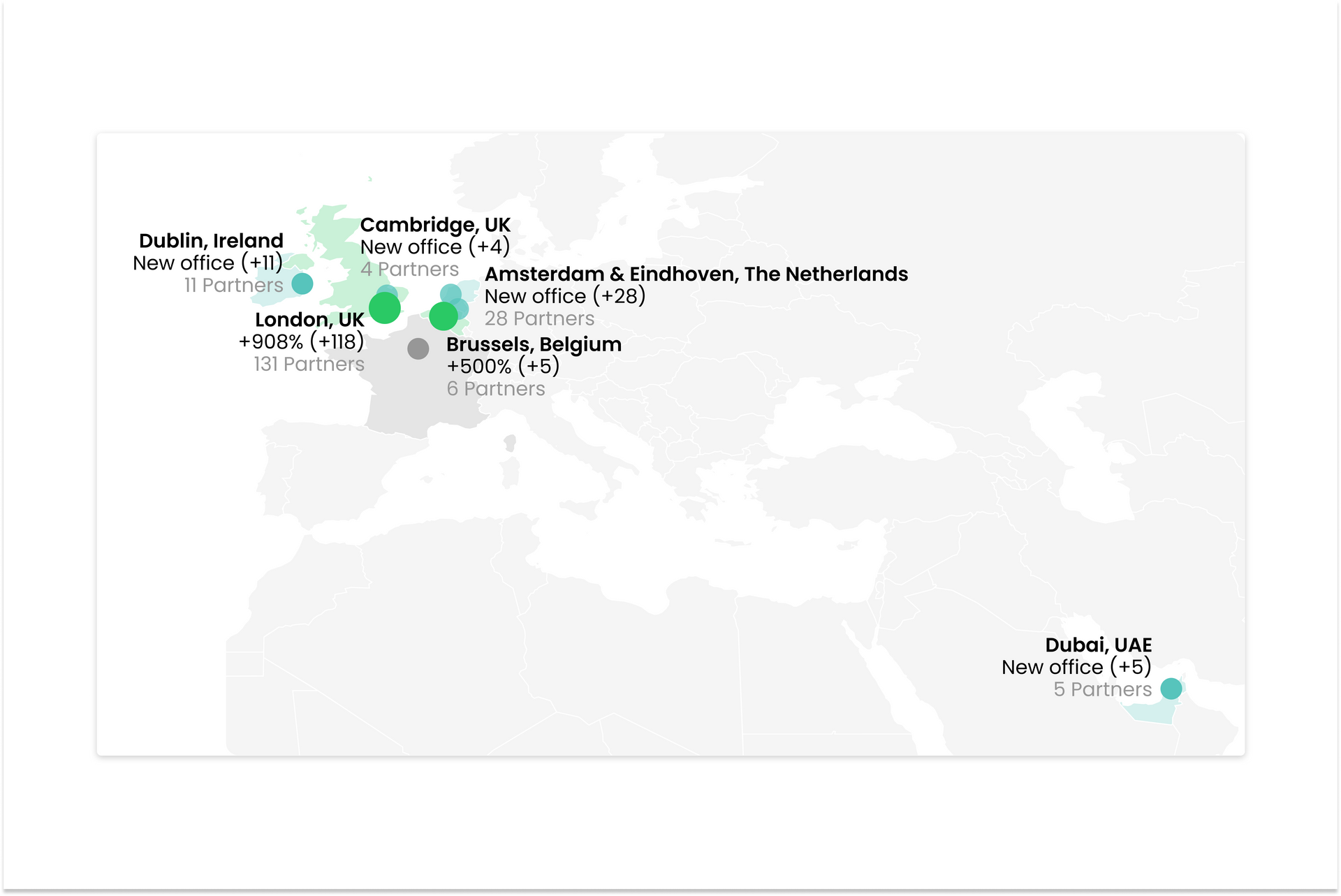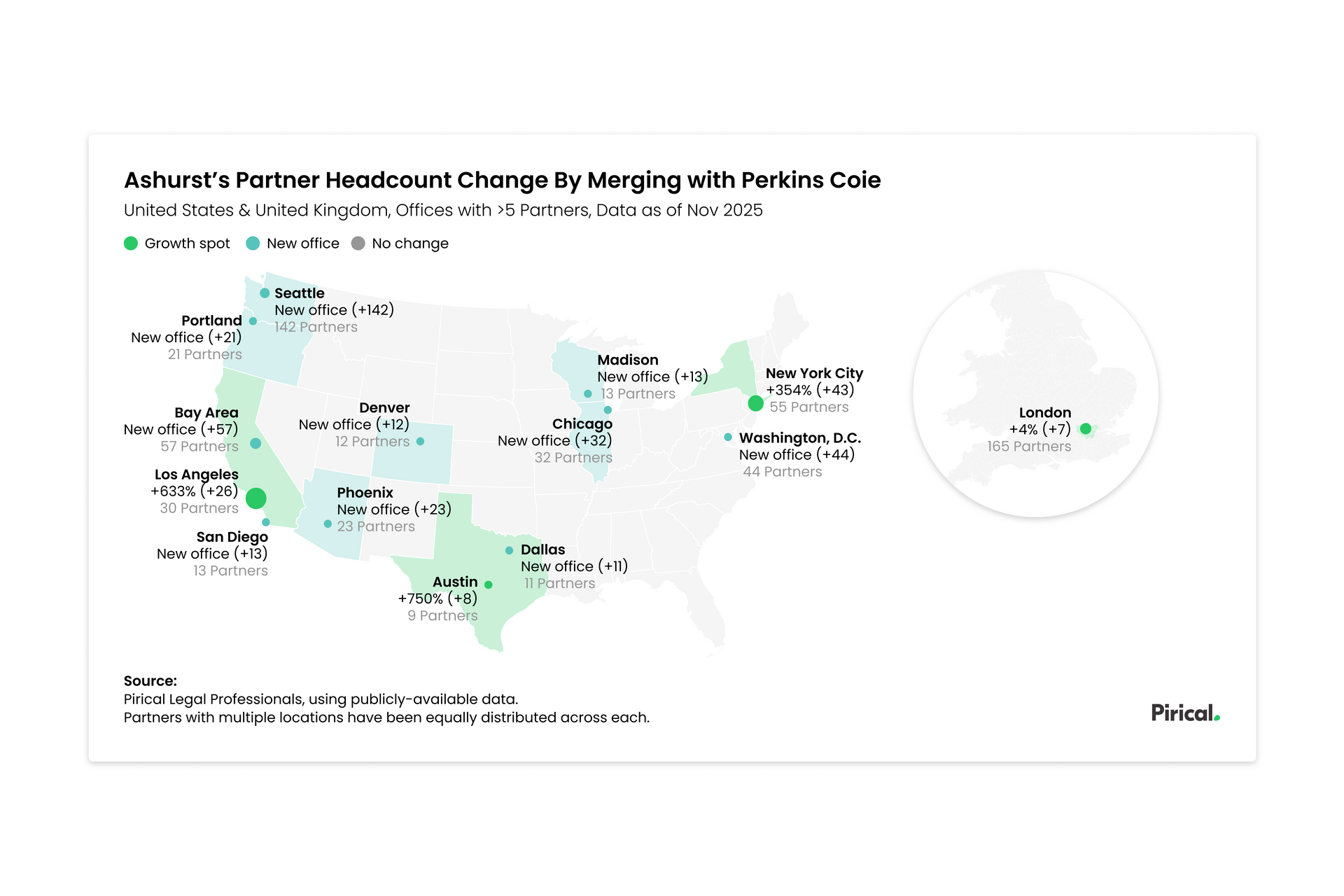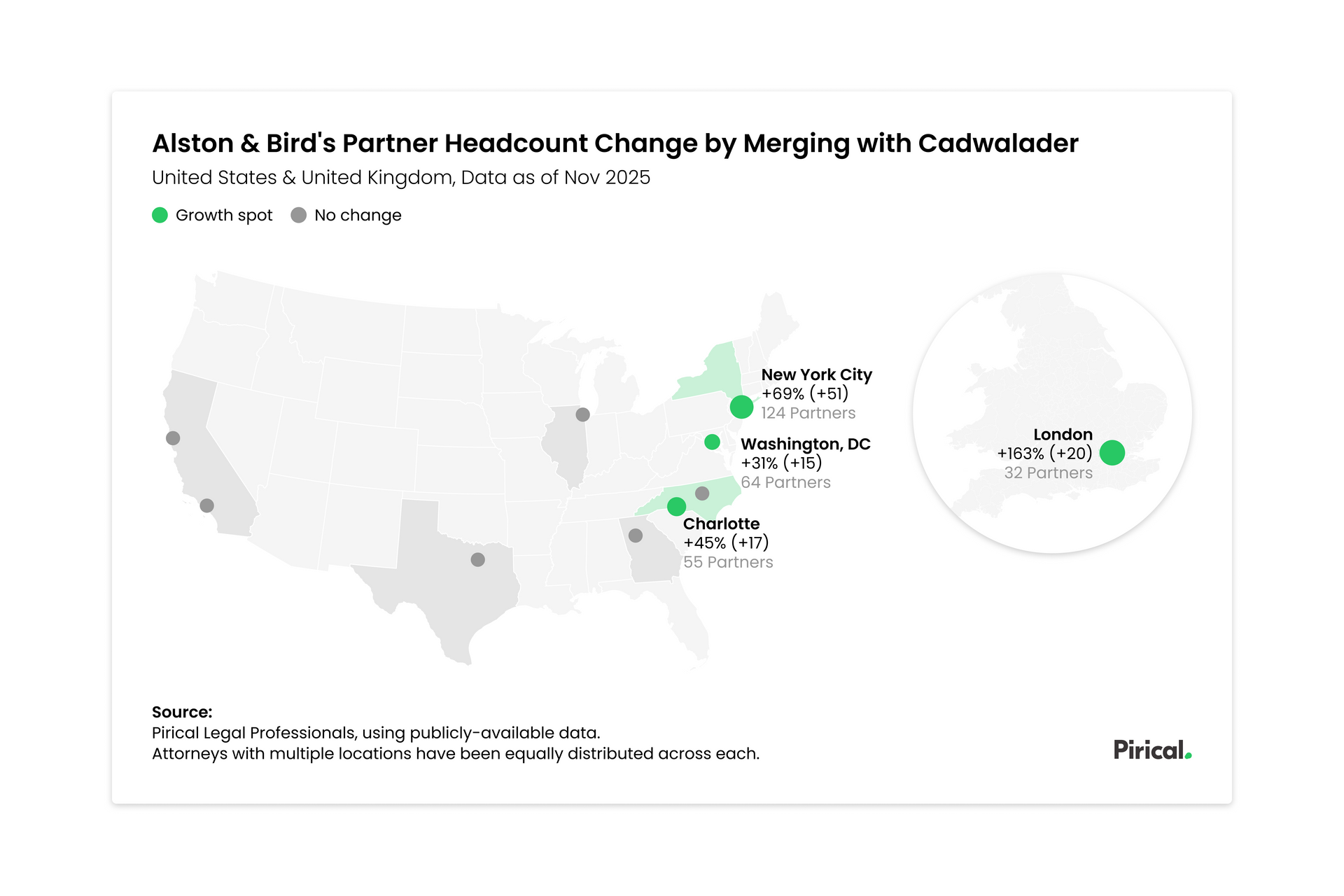Law firms are knocking out competitors with a strong D&I strategy
We had the great opportunity to speak with Danielle Kelly, Global Head of Diversity & Inclusion for Herbert Smith Freehills (HSF), about her development and delivery of HSF’s global D&I strategy and the role of data analytics within that.
Clients are interested in firms with diversity on their agenda
The last few years have seen a real turning point for the legal industry. Danielle started by highlighting how the priorities from HSF’s clients have evolved, noting a shift from “rarely followed up on” standardised questions, towards more serious signals of commitment to D&I.
HSF responded to a rise in demand by engaging openly in conversation with their clients, and delivering diversity data analysis upfront.
“This year we have trialled with our clients using Pirical’s diversity data analytics to report how we have been servicing their account, and to show them how seriously we are taking our commitment to diversity and inclusivity. The transparency has opened up honest conversations about not just who has been allocated the work, but also the impact of the relationship with the client on our people, including on our own firm’s retention and promotion.”
This range of D&I initiatives has been “directly influential in broadening the scope and range of discussions that many clients are now having with HSF.” Danielle believes that clients who truly understand the benefits of D&I have enormous power to require greater transparency from their panel firms in relation to D&I. HSF partners are often encouraged by clients to engage with them around how they can each nudge the legal profession to be more inclusive - both from the client side and the private practice side. In other words, it’s both a supply-side ‘push’ and a demand-side ‘pull’. With Pirical we are equipping partners with the diversity data they need to engage in this conversation. HSF is proud to have sparked competition with other firms and helped set standards across the industry, as it pushes others to “focus more seriously on their diversity strategy which in turn raises the bar across the whole legal profession.”
The advantage of competing in a global economy
HSF operates a number of international offices, which has posed a challenge for D&I practitioners to create a model best suited to each region. In relation to race and ethnicity, Danielle says it is “difficult to look at ethnicity targets at a global level - it needs to be understood within the region you are operating.” Danielle emphasises the importance of tailoring the questions for each region, “setting a global ethnicity target in partnership, for example, would be counterintuitive.” Across HSF regions there are varying levels of sensitivity to collecting and discussing ethnicity data and so the issue of ethnicity data collection must always be handled with care.
In the UK, HSF is familiar with asking questions in relation to ethnicity by way of the Solicitors Regulation Authority , whereas in Australia, there is “no regulatory requirement to ask your people about their ethnicity”. As a result, it can be more difficult to obtain good ethnicity data in Australia - data which is very important for informing a diversity strategy. This contrasts with the position in relation to gender in Australia, where the Workplace Gender Equality Agency has been requiring organisations with more than 100 employees to report on their gender profile for some years. (Each year, the Workplace Gender Equality Agency collects a series of data across six gender equality indicators, including promotion, representation and utility of resources and working arrangements).
In September 2020, HSF announced its 10 Actions for Change which are a series of actions the firm has committed to in order to improve ethnic diversity across the firm, particularly at more senior levels. Action 4 concerns better informing the approach to ethnicity through robust data collection. Very few, if any, organisations have managed to come up with a set of ethnicity questions that resonate across their global footprint. This has not stopped HSF, which is currently on track to have collected ethnic diversity data on its partnership and senior businesses services roles by early 2021.
Danielle also discussed the importance of psychological safety - i.e an environment which supports interpersonal risk taking and divergent thinking (to use Professor Amy Edmondsen’s definition). One of the ways in which the firm has sought to “operationalise” psychological safety and tap into diverse perspectives is their recently launched People Forums, which are made up of groups of around 10 people of varying seniority in each region whose role is to engage with the regional executives around people and cultural matters.
Inclusive culture poaches the best talent
As a diversity leader, Danielle comments that it is “facile to say there is no competitive element, [between firms] because there simply is.” She describes D&I, and culture more broadly, as a “key differentiator” between firms for many aspiring lawyers. In the recruitment process, law students will look at the culture of a firm when considering their options. A more diverse and inclusive environment makes for a “better place to work” and a firm that has a good reputation for inclusivity is more likely to poach the best talent.
When HSF created its global “IRIS” (Inclusion, Respecting Identity and Sexuality) network, the received feedback from graduates and students on campus, that this initiative was a key indicator to them of an inclusive culture, particularly given the leadership of that network was coming from HSF’s CEO, Justin D’Agostino.
Measuring diversity & inclusion
“By its nature, it is a lot easier to measure diversity over inclusion. Some aspects of identity (such as gender) are easy to measure. Other information is harder to gather (ethnicity, sexual orientation, disability status). Measuring inclusivity, by its very nature, ventures into a more subjective realm. It requires carefully worded, sometimes nuanced questions to garner the subjective views of staff as to their experience of belonging and respect within the firm.”
When reflecting on the firm’s D&I journey, Danielle points to some key milestones where data has been instrumental in shifting perceptions. One example of this was some years ago when the firm led a gender analysis of how individuals rated others on a talent matrix. “Having this objective data really gave colour to what we had been saying for some time - that, for many of our people leaders, their assessment of “merit” in the team was coloured by unconscious bias, and particularly affinity bias.” Having granular data which can be measured over time in order to signify progress is very important for demonstrating the robustness of your D&I strategy.
Danielle describes the importance of giving consideration to the setting of targets within a D&I strategy. Clear, measurable and transparent targets (with a due date for achievement) helps maintain momentum and ensures a constant focus on the underlying data. “Our gender and ethnicity targets are a clear indication to our people and our clients that we see these issues as important and that we are prepared to set ourselves an aspirational goal to do better.”
Danielle argues that there is much scope for collaboration between firms to develop better ways of comparing and improving on their D&I data, including:
- Content, scope and format of regular reporting
- Common descriptors of roles, seniorities and gradings
- Data sharing protections
- Counting methods and statistical tests
The legal profession has been focused on diversity and inclusion for over a decade now, and there is scope for law firms to collaborate more in addressing the D&I issues that affect the whole sector.
“Recently Jason brought together a number of large law firms to consider what we could do as a profession to improve ethnicity in our organisations in response to the increased focus on Black Lives Matter. It is an important conversation to be having, and I am keen that HSF remain at the heart of driving ourselves - and the profession more broadly - to do better.”
Pirical On Demand (POD) is the UK’s first on demand people analytics service for HR in legal and professional services. Track your firm’s diversity and inclusion strategy with real-time data and thousands of pre-populated data questions
Subscribe to the latest data insights & blog updates
Fresh, original content for Law Firms and Legal Recruiters interested in data, diversity & inclusion, legal market insights, recruitment, and legal practice management.







